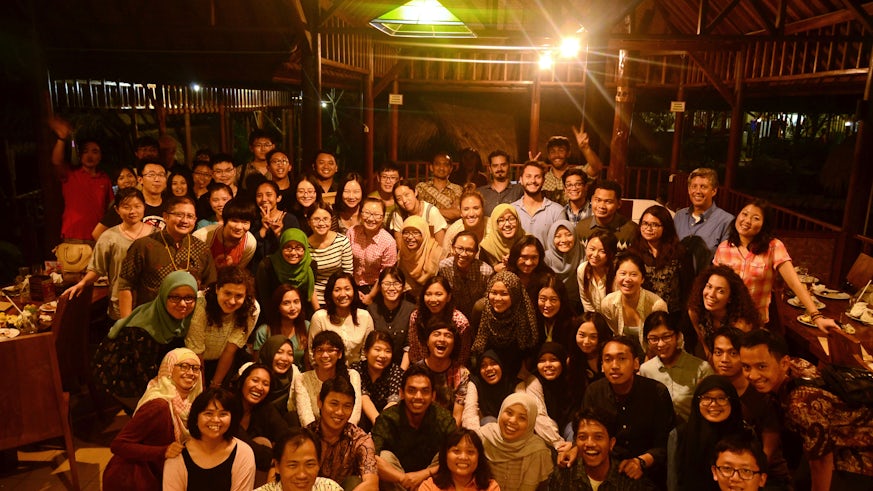Eco-City field trip to Jakarta
5 April 2016

Eco-City MSc Students return from a field study visit to Indonesia.
The MSc Eco-City, a postgraduate degree offered by Cardiff University’s School of Geography and Planning, offers students an opportunity to study the theory and practice of the transition of cities and urbanised areas to low-carbon, sustainable places. The course recognises that there is a considerable gap between ideal models of low-carbon, sustainable eco-cities and the reality. One challenge is that solutions that work in one context and culture may not be transferable and suitable for another. Each intervention to foster the transition of urban environments to greater sustainability needs to be based on careful research and working with local people.
The recent field study visit is part of a compulsory live project module which has students examine particular conditions in a city or place in situ. Speaking about the trip, which had 28 MSc Eco-City students travel to Jakarta for a period of 11 days, module leader Dr Andrea Frank said: “Getting out of the four walls of the University, and conducting field work is something that many students aren’t used to doing. It gives them a fantastic opportunity to immerse themselves in an issue and learn a lot in a short time. The experience typically has a profound impact on how they look at the world and learn from a real life situation.”
In Jakarta, Cardiff students took part in the International Joint Seminar and Studio in the city of Depok, part of the Jakarta metropolitan area, and working collaboratively with students from the University of Indonesia and the University of Florida (USA). Students conducted field research, explored local culture and habits in order to develop policy recommendations in collaboration with local stakeholders that fit local conditions. The students worked intensively in interdisciplinary groups developing proposals to enhance water management and sustainability for 3 different districts. This required students to overcome culturally different perspectives, language barriers and understanding local conditions within five to six working days in order to then develop solutions and recommendations for interventions.
“The field trip allowed students not only to developed new skills in intercultural communication, data collection, and giving presentations and acquire subject-specific knowledge in interpreting eco-city transition barriers – but also enhanced their life experience. The international collaborations have continued beyond the field trip stay while US, Indonesian and Cardiff students finalise their projects back home” said Dr. Li Yu, Course Director, MSc Eco-City.
Reflecting on the experience, Dr. Flynn, Director for Teaching and Learning accompanying the trip, said: "Project-based field study visits illustrated the potency of such international student collaborations as an effective pedagogical approach to support students’ professional and personal growth and development."
The Jakarta field trip was co-subsidized by a Global Innovation Initiative Grant awarded to Cardiff University, University of Florida and University of Indonesia. http://ggi.dcp.ufl.edu/